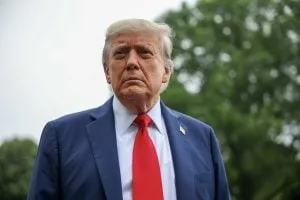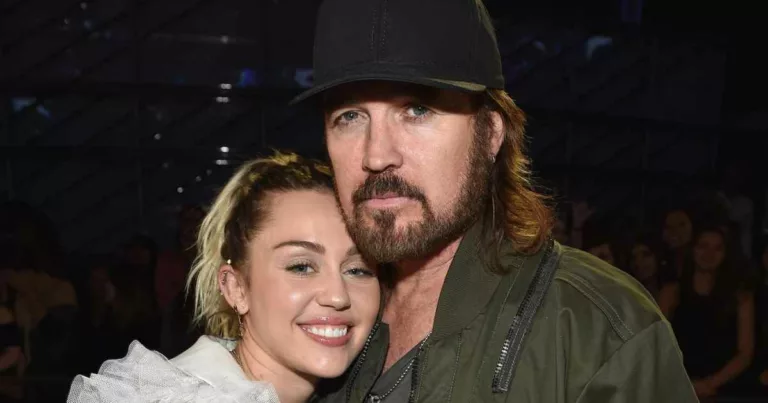Trump Threatens Federal Control of DC Following Assault on DOGE Employee
In a significant development this week, Donald Trump, the former president and current Republican presidential nominee, has threatened to federalize Washington, D.C., following an attack on a young employee of the controversial “DOGE” agency. This move comes as Trump aims to reshape security and law enforcement protocols in the nation’s capital, a city he claims is plagued by rising crime.
Earlier, Jeanine Pirro, a prominent Fox News personality and one of Trump’s staunch supporters, was confirmed as the U.S. attorney for Washington, D.C. Her appointment could pave the way for new legal strategies in addressing the concerns raised by Trump regarding crime in the city. This background accentuates the political weight behind Trump’s assertive stance on law enforcement in D.C.
The catalyst for Trump’s latest comments was an alleged assault on Edward Coristine, a 19-year-old employee of DOGE, who has gained notoriety for his outspoken persona affectionately nicknamed “Big Balls.” According to a police report obtained by Politico, Coristine fell victim to a brutal attack by a group of teenagers, leading to significant injuries. Two suspects, both aged 15, have since been arrested and taken into custody.
In a post on his Truth Social platform, Trump did not hold back. He expressed outrage over the level of crime in Washington, stating, “Crime in Washington, D.C., is totally out of control. Local ‘youths’ and gang members, some only 14, 15, and 16-years-old, are randomly attacking, mugging, maiming, and shooting innocent citizens, at the same time knowing that they will be almost immediately released.” He emphasized the need for a serious reevaluation of how minors are prosecuted, advocating for changes that would allow minors as young as 14 to be tried as adults.
Trump’s call to action extended beyond his comments on youth crime. He warned that if the local government doesn’t enact significant changes, he would “have no choice but to take Federal control of the City,” stating he intends to run D.C. “how it should be run.” He added, “Perhaps it should have been done a long time ago, then this incredible young man, and so many others, would not have had to go through the horrors of violent crime.”
The implications of Trump’s statement are significant. Should he follow through on this threat, it would set a precedent for federal intervention in local governance, raising questions about autonomy and the political ramifications in a Democrat-led city. Furthermore, this situation reflects broader national conversations regarding law enforcement, crime rates, and the treatment of juvenile offenders, themes that resonate deeply in the current socio-political climate.
At a press conference on Tuesday, Trump reiterated his stance, emphasizing Coristine’s injuries and the need for immediate government reform in D.C. “I have to say that somebody from DOGE was very badly hurt,” he stated. “A young man who was beat up by a bunch of thugs in D.C., and either they’re gonna straighten their act out in terms of government and in terms of protection or we’re gonna have to federalize and run it the way it’s supposed to be run.”
Pirro, whose appointment aligns closely with Trump’s administration philosophies, echoed his sentiments, stating, “It’s time we start taking crime more seriously irrespective of the age of the criminal. No longer can we coddle criminals while innocent victims are being assaulted and maimed as young, violent criminals avoid consequences. It’s time for this to end.”
The reactions on social media have been mixed, with some applauding Trump for his tough stance on crime, while others criticize the overreach of federal power into local governance. Detractors argue that such an approach does not address the root causes of crime and could exacerbate tensions between law enforcement and communities.
This situation is unfolding against a backdrop of heightened public discourse about crime in America, particularly as crime rates have fluctuated in various cities. Trump’s emphasis on crime in D.C. may play well with his base, especially as the nation heads toward the 2024 presidential election. Voters are increasingly concerned about safety and security, making Trump’s message potentially pivotal in influencing public opinion.
As the narrative develops, there may be further implications not only for Trump’s campaign but also for the broader political landscape in Washington, D.C., as voters react to the federal government’s potential intervention in local law enforcement. As more information surfaces, including community responses and possible legislative changes, the landscape of crime and governance in the capital will undoubtedly evolve.
We are committed to providing the latest updates on this breaking story as the situation unfolds, highlighting the intersection of crime, politics, and public sentiment in America today.





